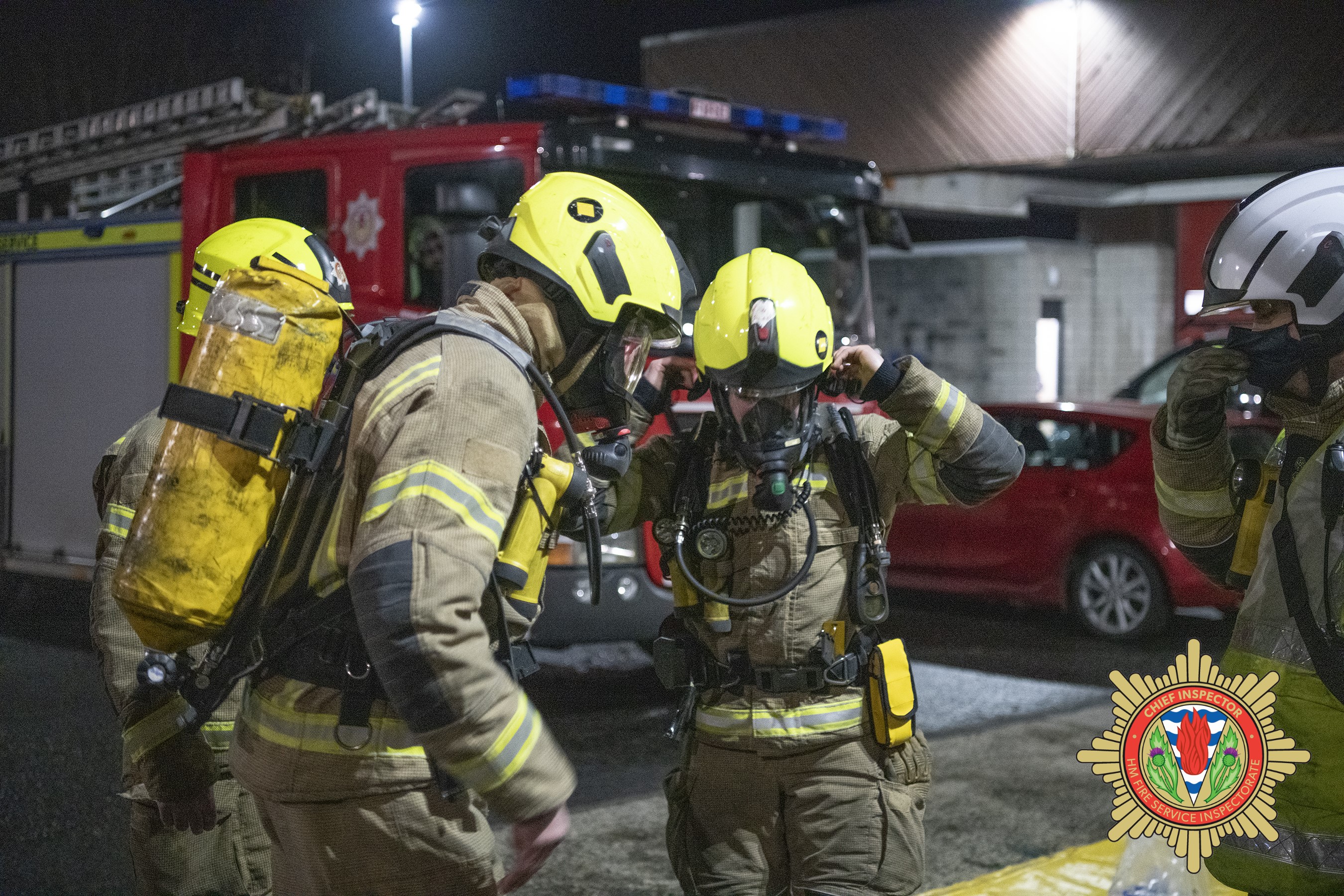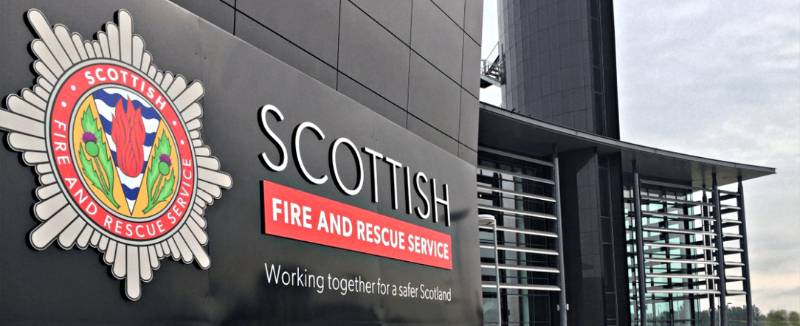Thematic inspections
Our Thematic inspections are an examination of a particular service-wide theme, and generally seek to understand how the Service as a whole is managing the subject under scrutiny. The inspection reports are laid before the Scottish Parliament.
The SFRS has an internal process for considering our reports, and their recommendations or observations. Officers of the Service compile an action plan for each report we produce, and these action plans are submitted to either the Audit and Risk Assurance Committee or the Service Delivery Committee of the SFRS Board for consideration and scrutiny.
The Chief Inspector is invited to attend and contribute to specific agenda items at both of these committees thus providing the Inspectorate with oversight of progress and assurance that recommendations have been considered and relevant action taken.
All inspection reports are published in the Publications area of our website
Current and ongoing Thematic Inspection Programme
Organisational Culture (Volume One)
There is currently a great degree of public interest in the organisational culture of the emergency services across the UK. The Chief Inspector’s plan 2022-25, indicated an intention to carry out an inspection of HR/workforce planning – recruitment, attrition, diversity and skills within the SFRS. We have revised our plans for that inspection and have taken the decision to look at wider organisational culture. This decision has been influenced by the findings of several reports conducted as a result of serious high-profile incidents regarding the conduct of staff within the emergency service sector, both fire and police, across the United Kingdom. The attached inspection outline provides further detail of what we intend doing with regard to an inspection of the organisational culture of the Scottish Fire and Rescue Service.
We are grateful to Professor Paresh Wankhade of Edghill University, and Mark Cashin, recently retired Chief Officer of Cheshire Fire and Rescue Service, for agreeing to provide quality assurance and academic rigour to our inspection process.

...
Operational Assurance
The Scottish Fire and Rescue Service (SFRS) are committed to firefighter safety, of which the provision of Operational Assurance (OA) is a key element. It is incumbent upon the SFRS to ensure there are suitable OA processes in place to review performance at operational incidents, as well as training events, in order to provide effective feedback and to influence future practice, enhance performance and improve firefighter safety. As such, the Chief Inspector’s programme 2024-25, indicated an intention to carry out an inspection of the SFRS Operational Assurance policy and the associated procedures, which are intended to support this concept and ensure commitment to the continuous improvement of operational response. This decision has been influenced in some part by the findings of our Service Delivery Area (SDA) reports conducted between 2022 to 2024. The attached inspection outline provides further detail of what we intend doing with regard to an inspection of Operational Assurance Provision in the Scottish Fire and Rescue Service.

SEE ALSO


